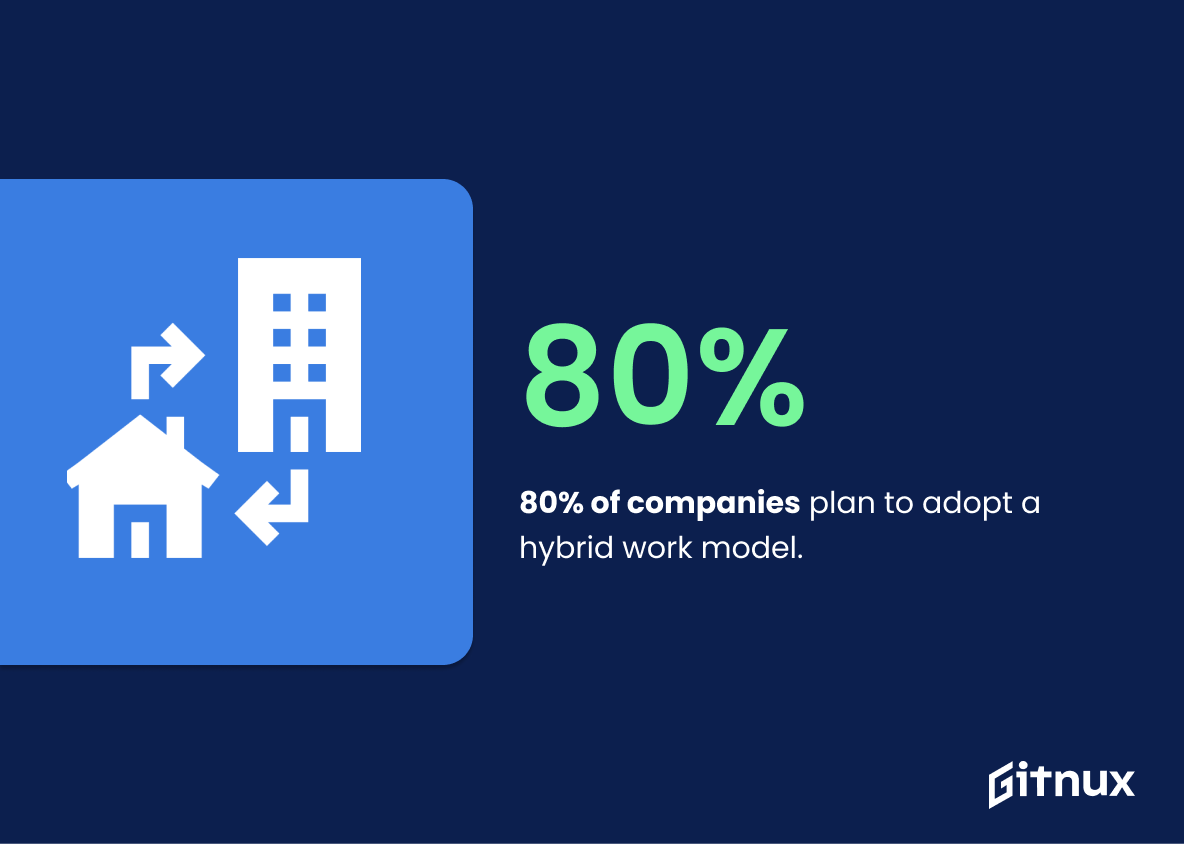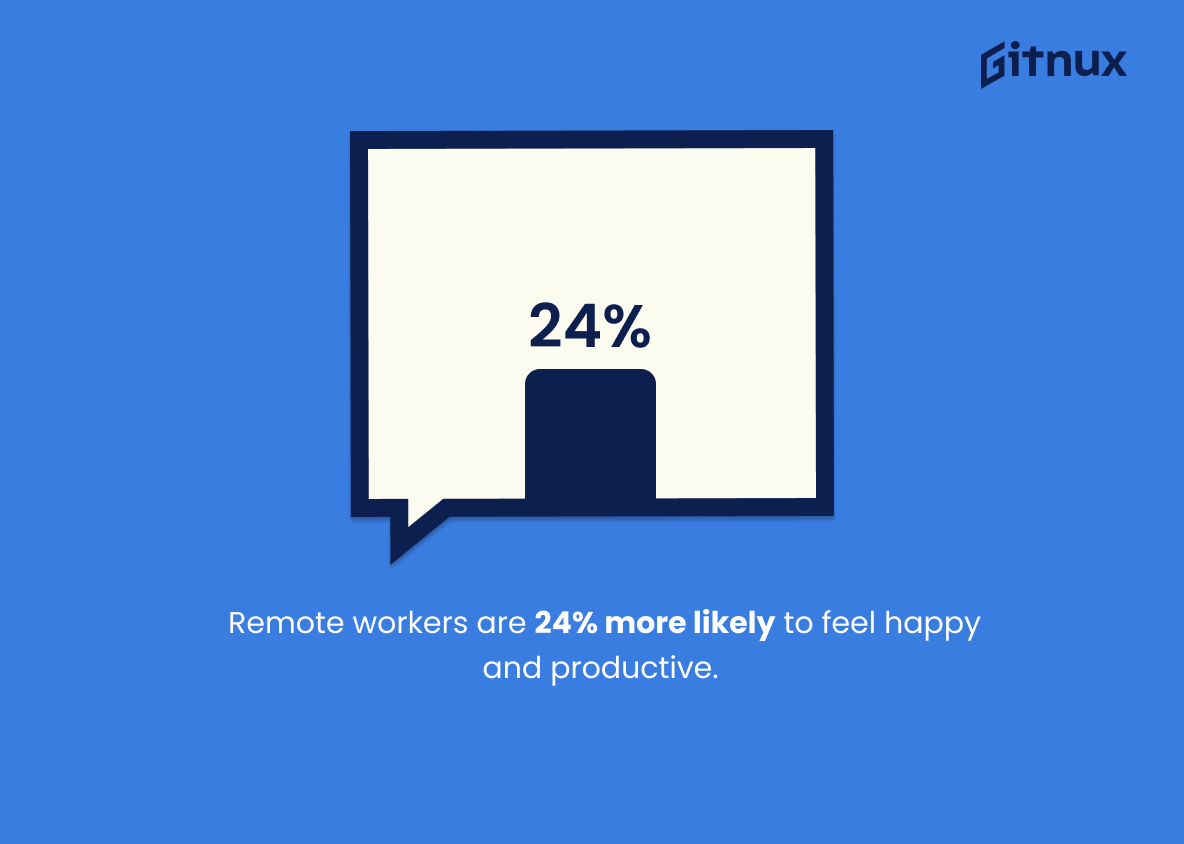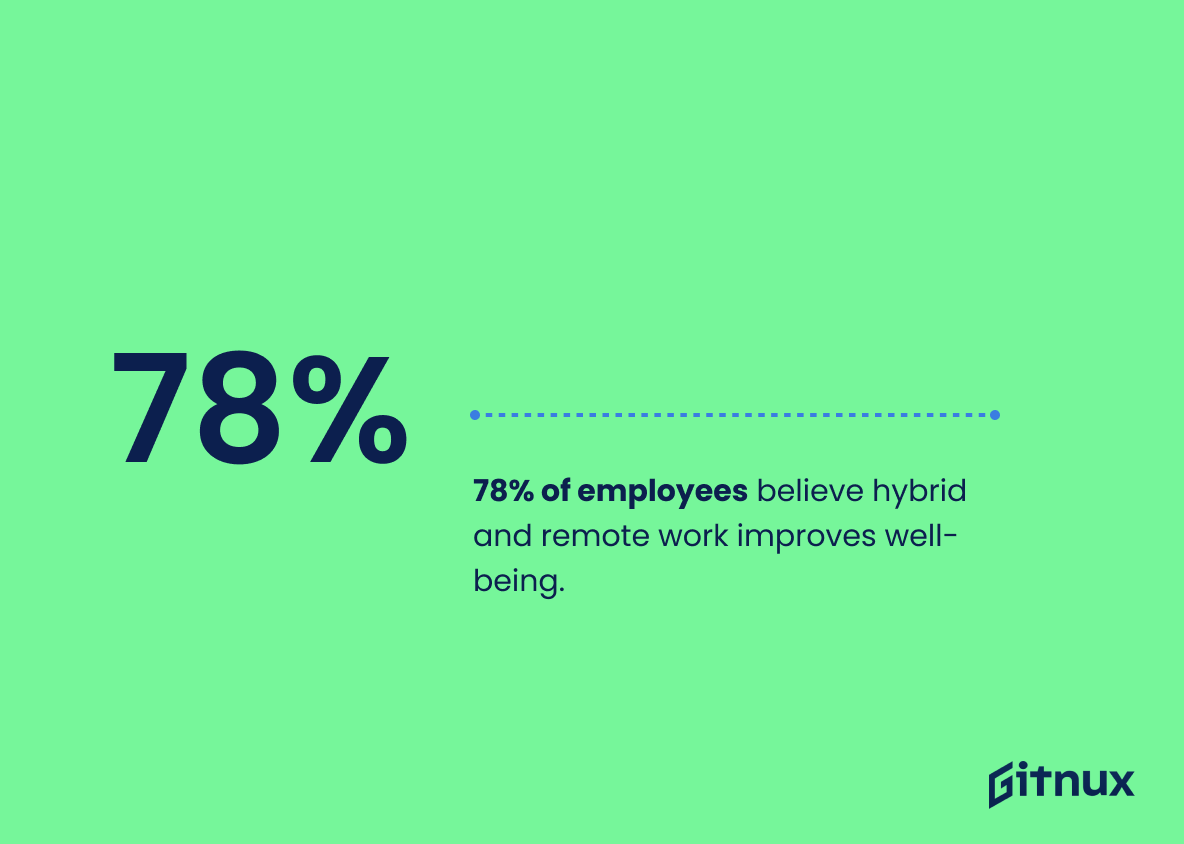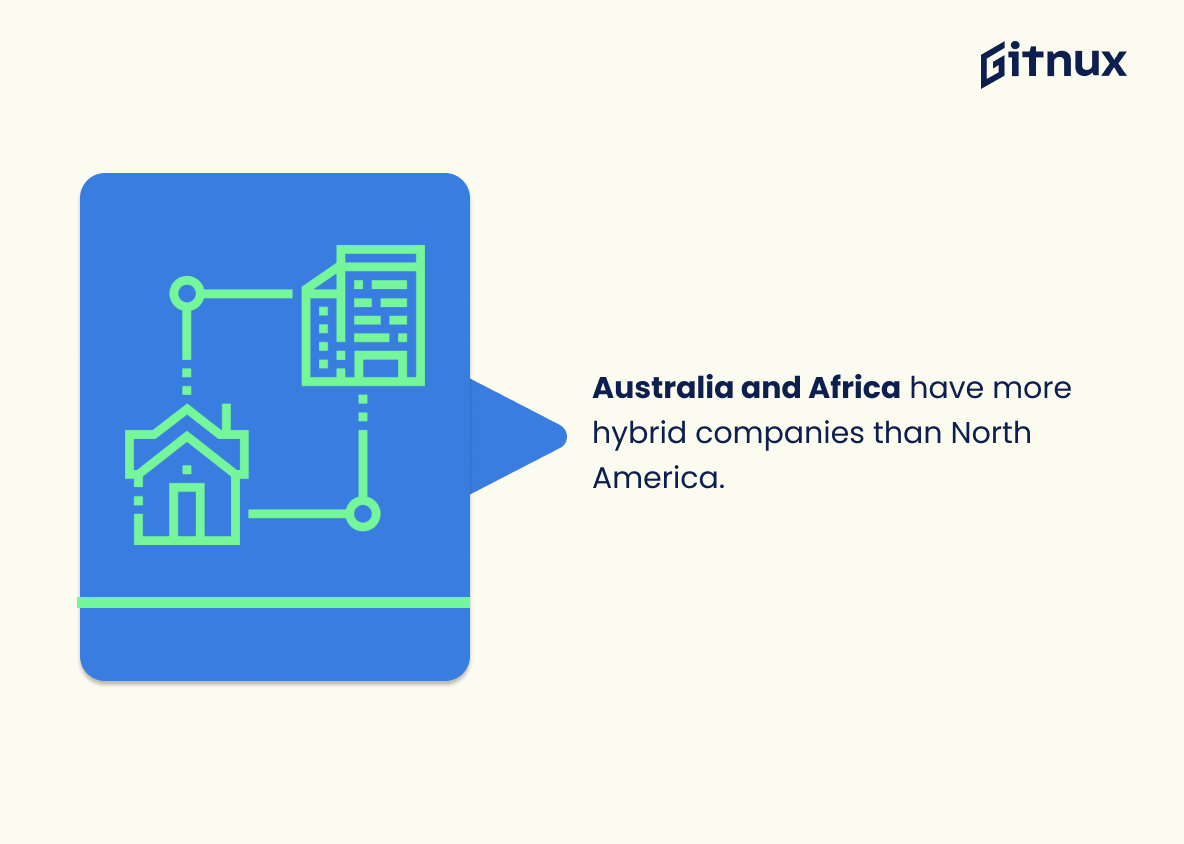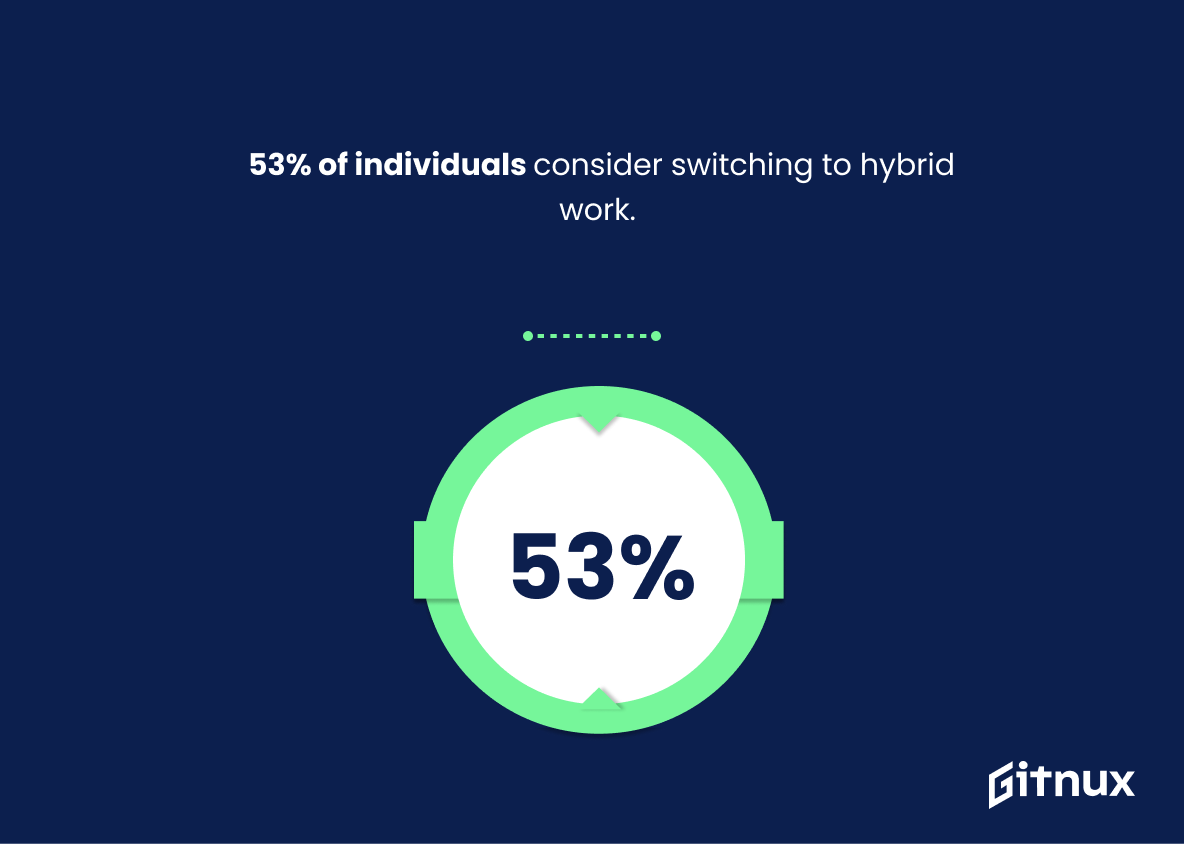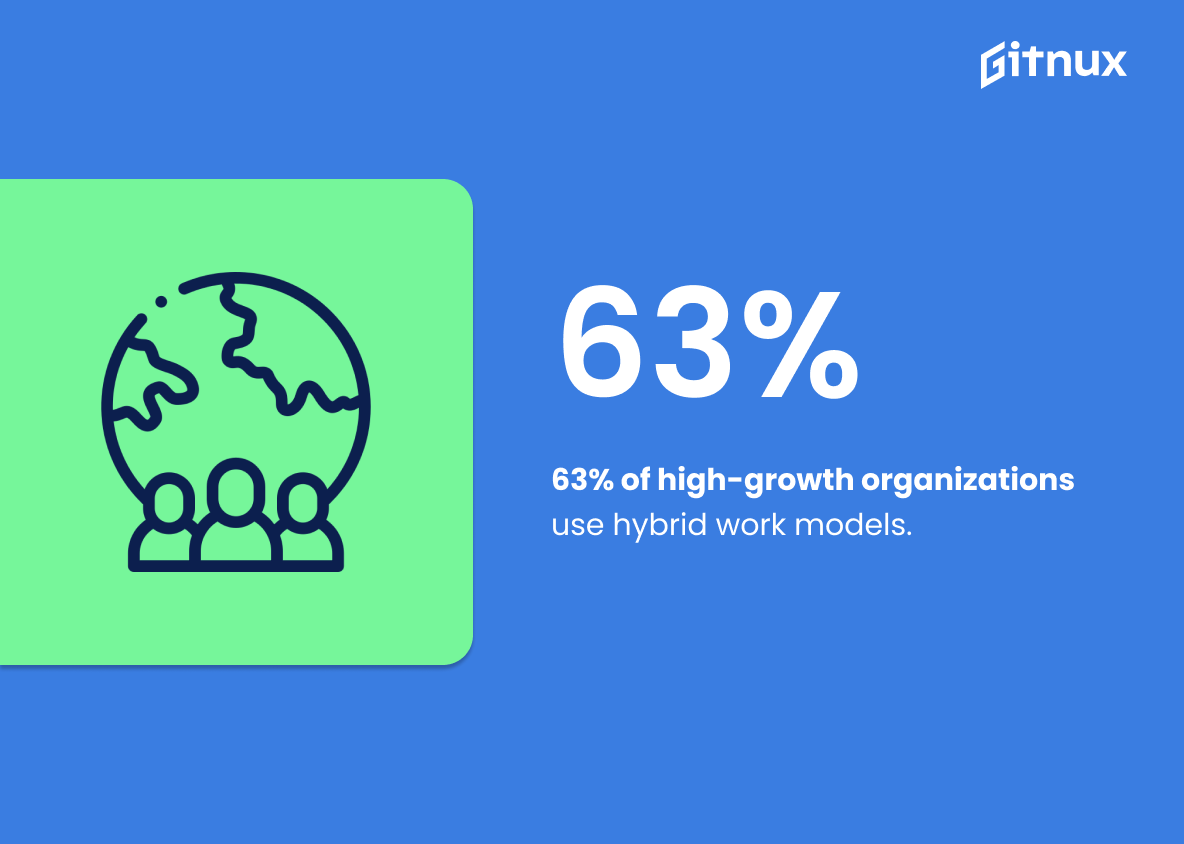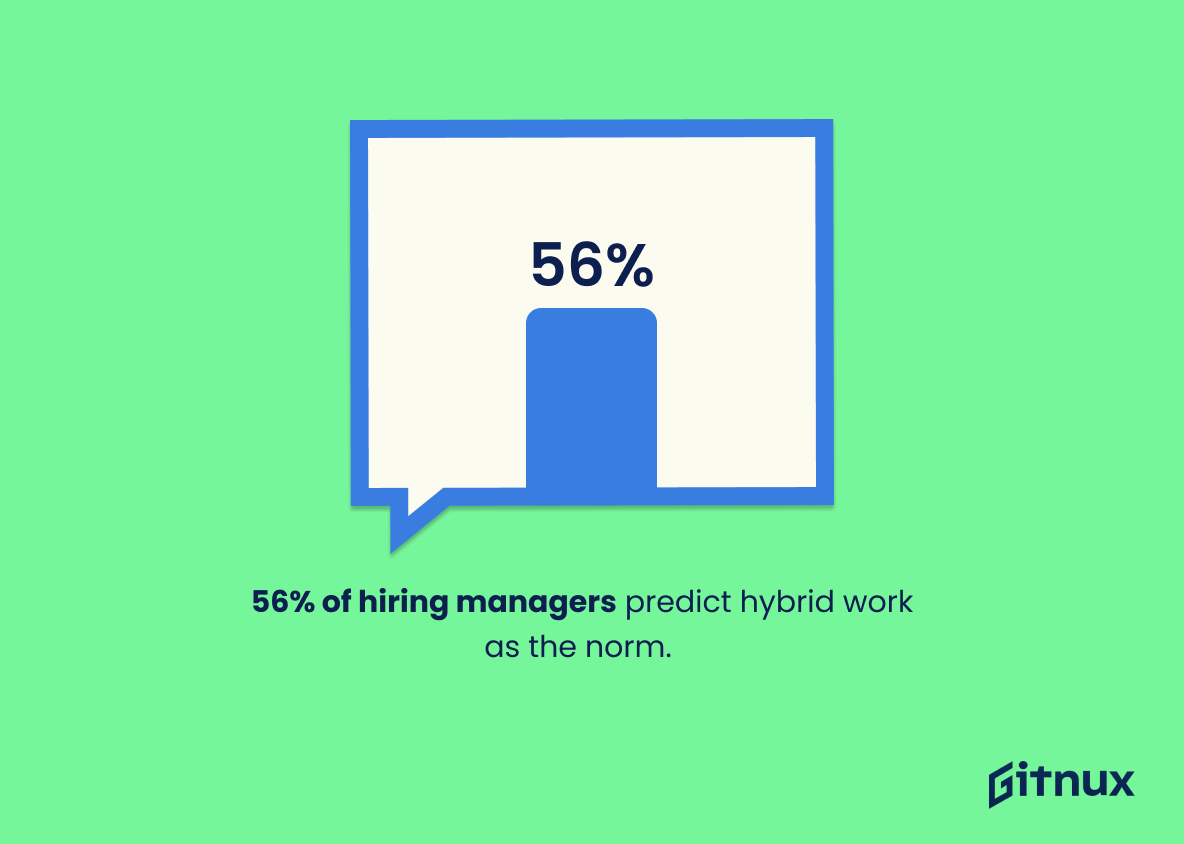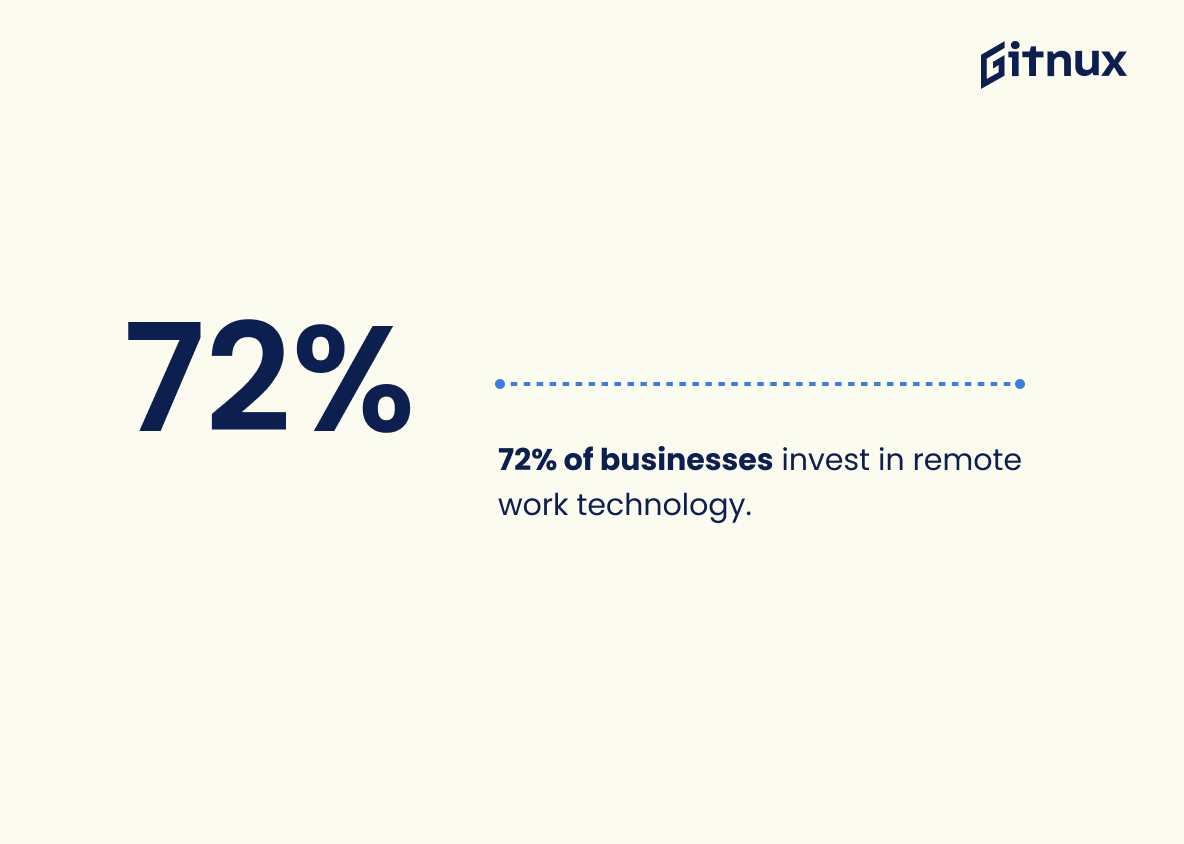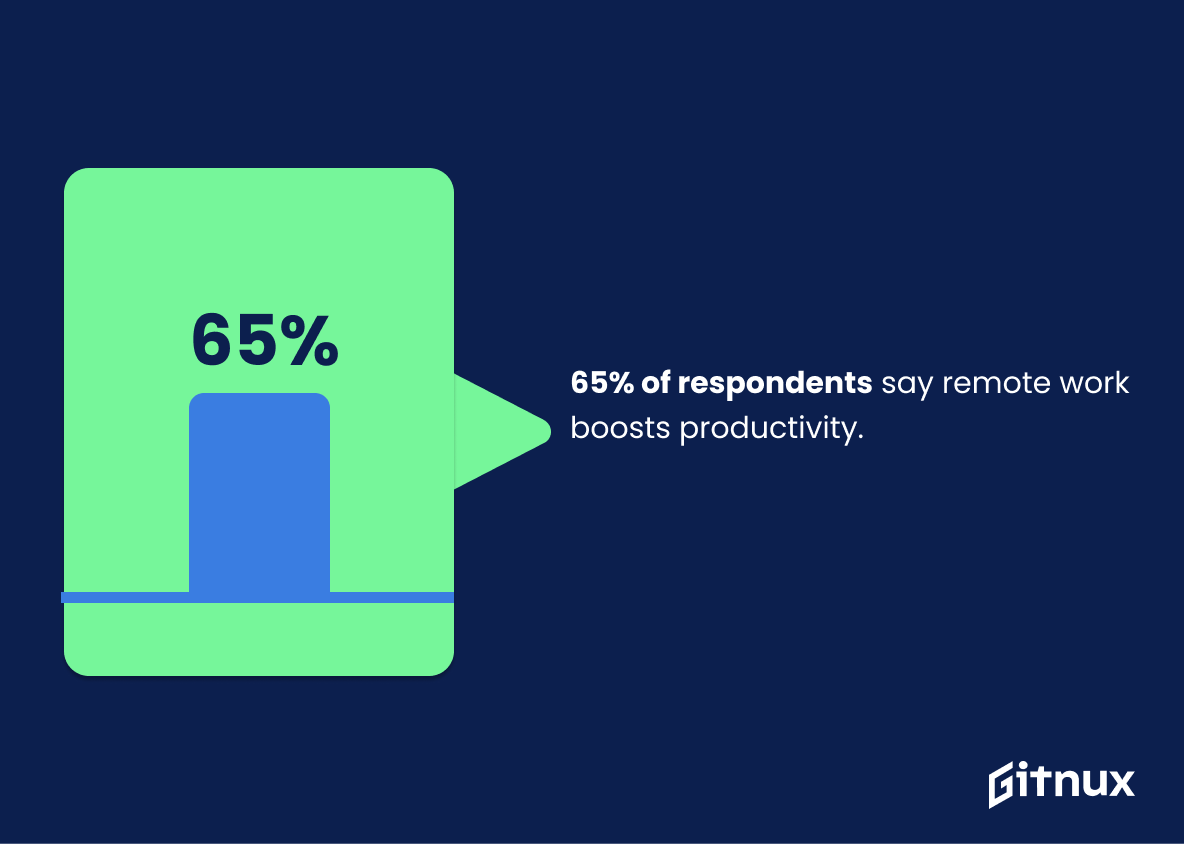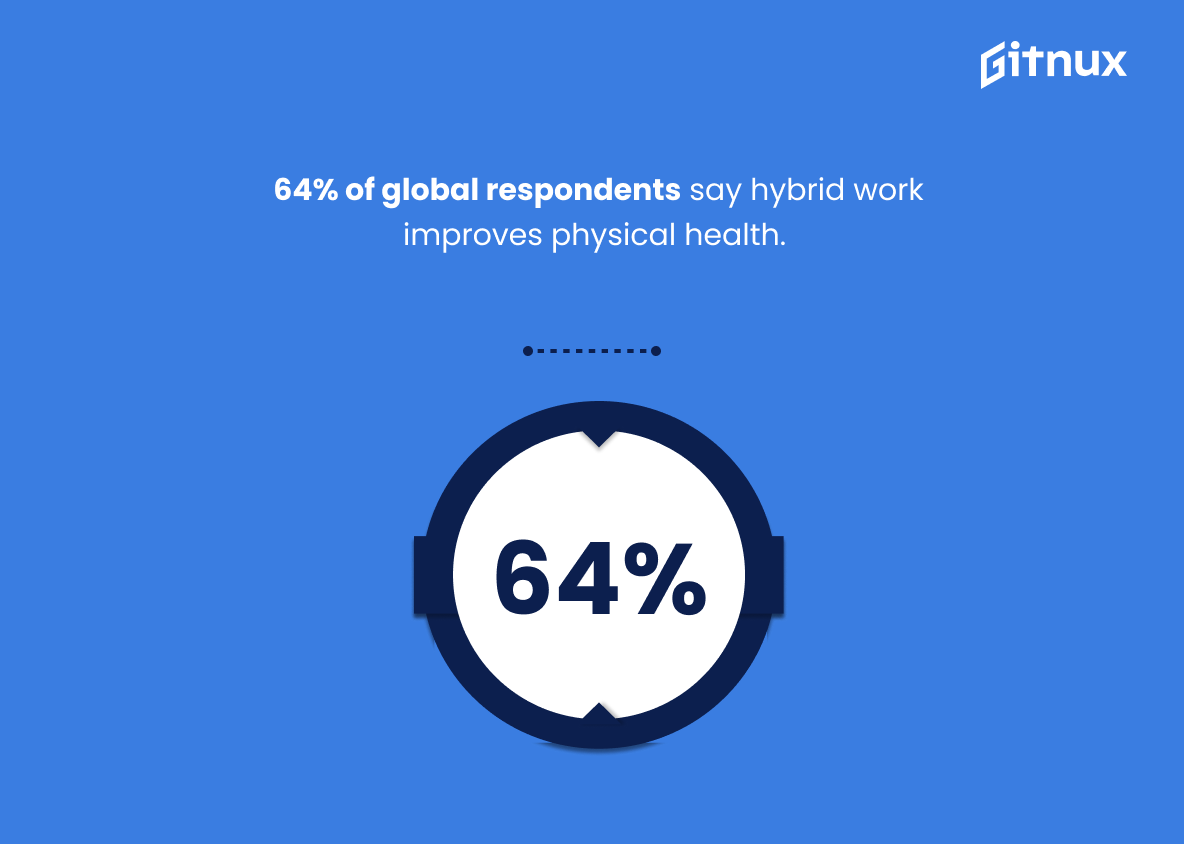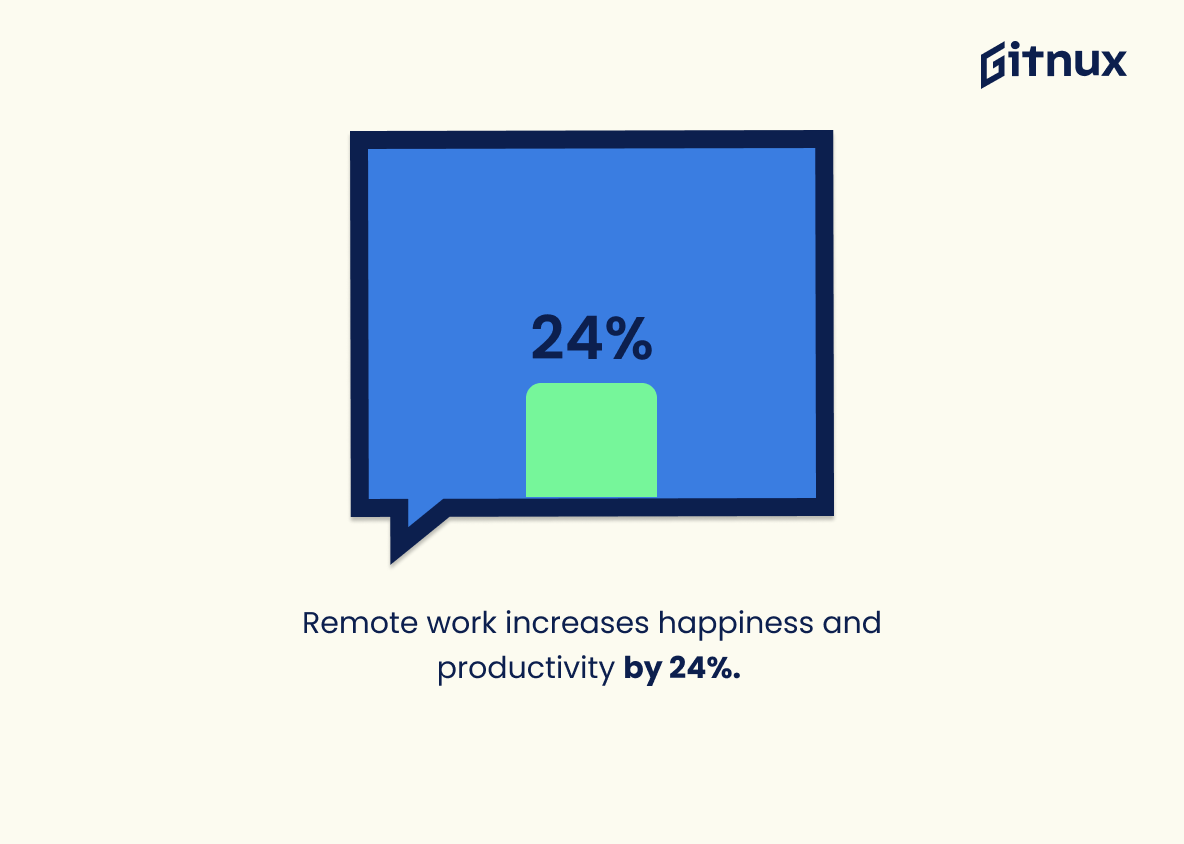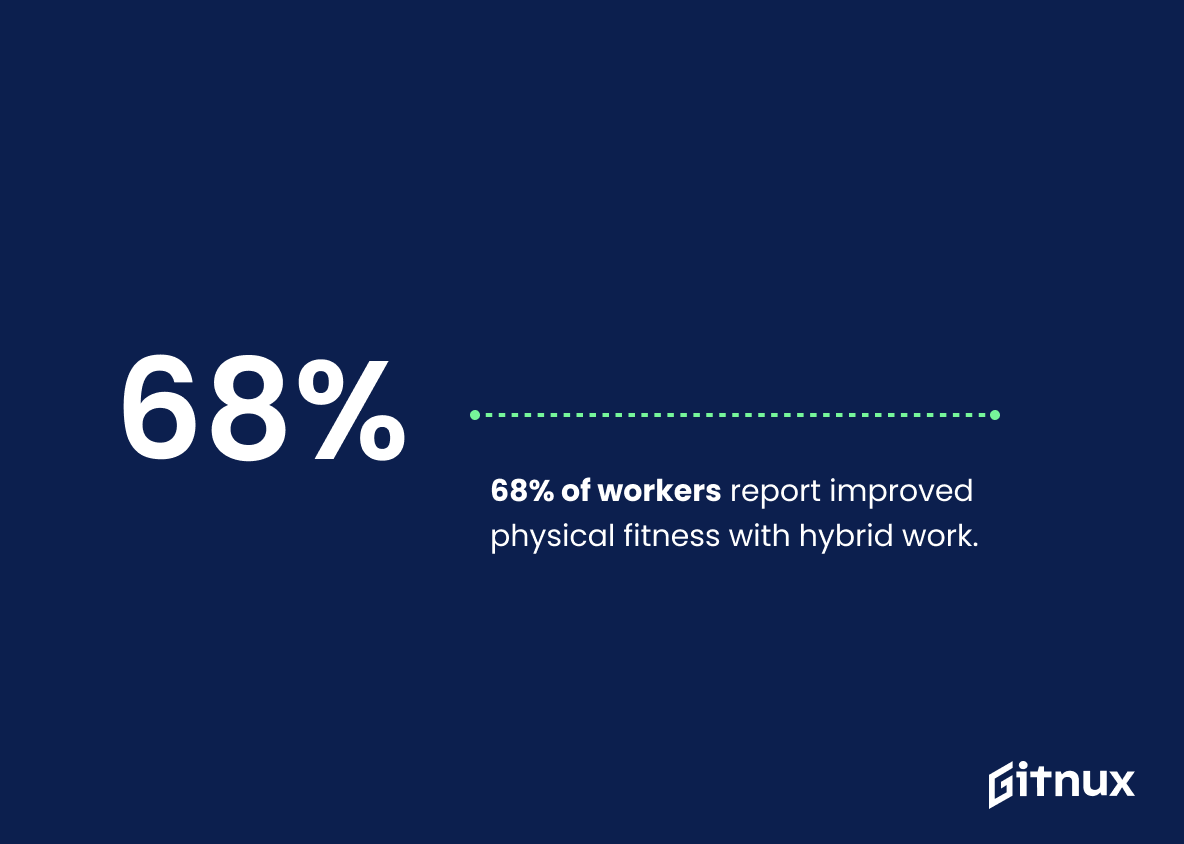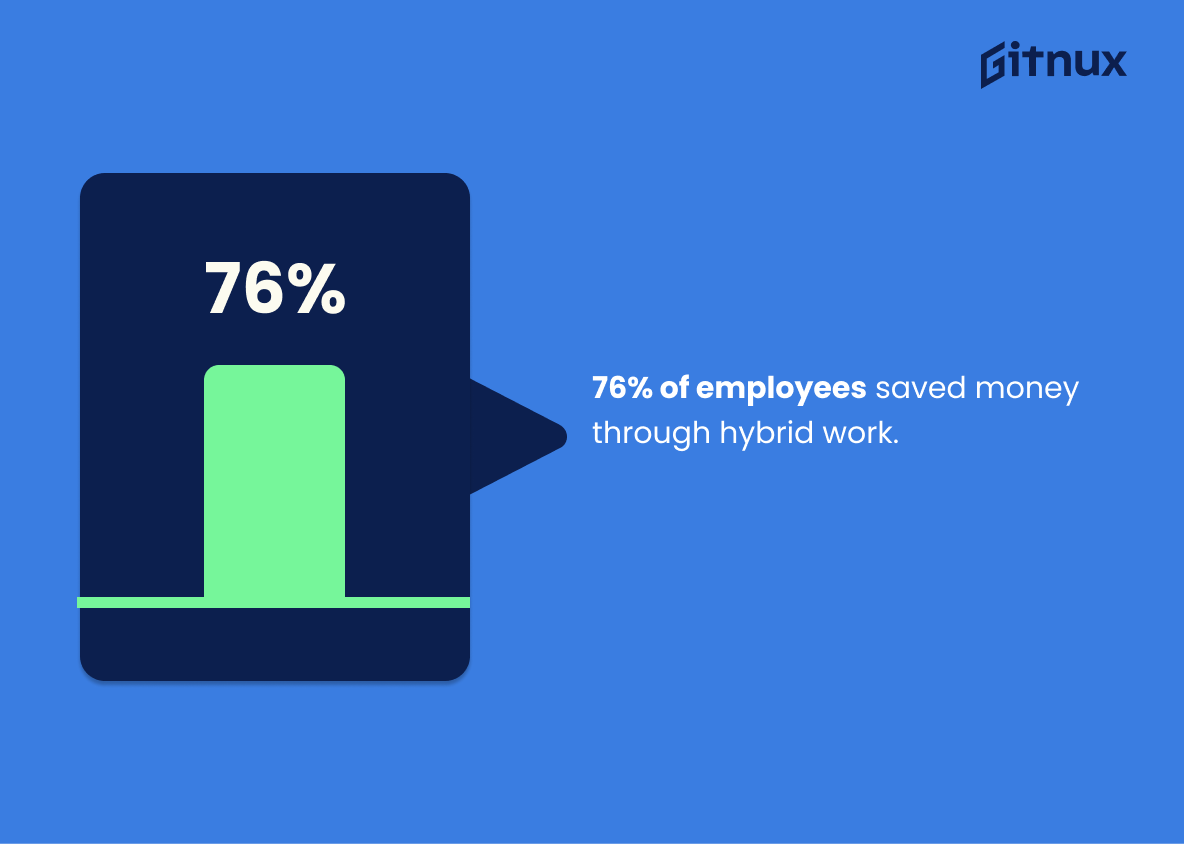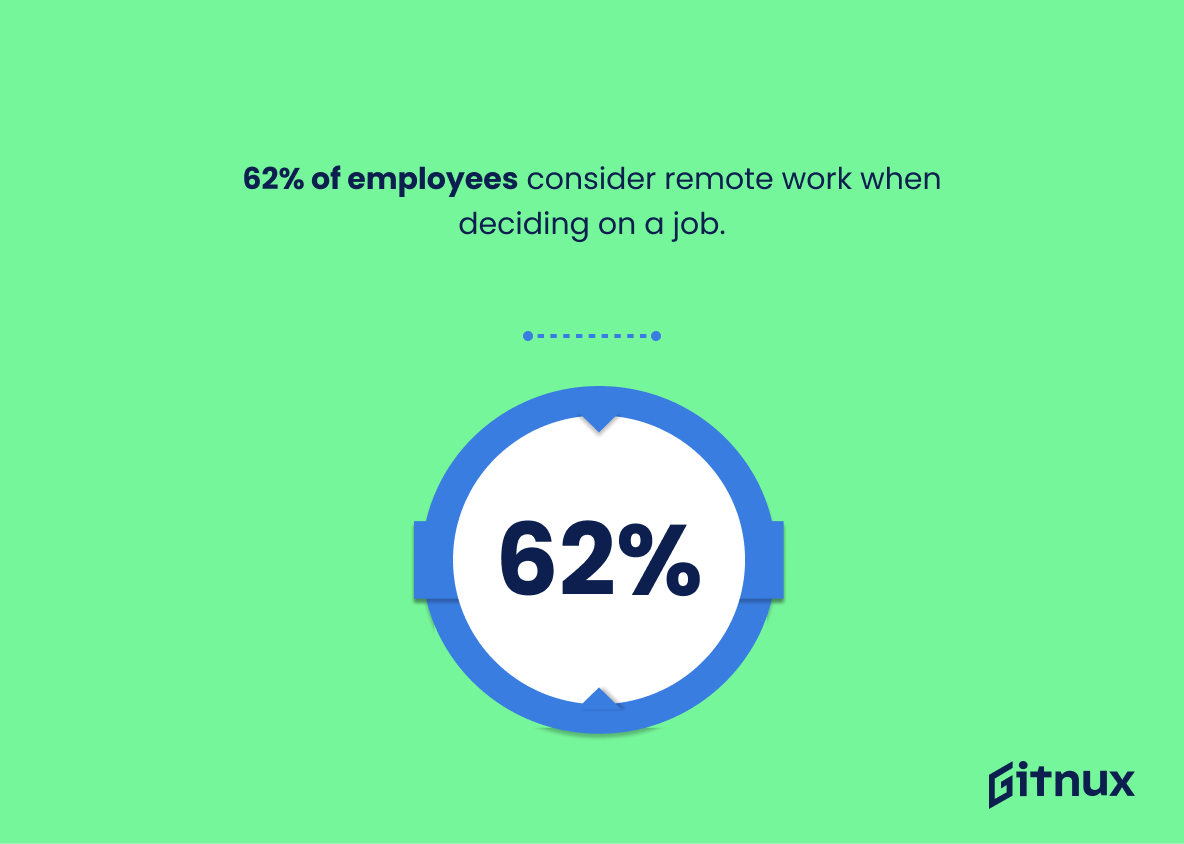As the world continues to deal with the pandemic’s effects, hybrid work has become the norm, with many companies permitting employees to work from home while maintaining a certain level of in-person interaction. As this new model of work continues to evolve, it is essential to understand the current trends and statistics regarding hybrid work.
In this article, we will go through hybrid work numbers in many aspects including general statistics, hybrid work advantages, hybrid work adoption, and more below.
General statistics on hybrid work
Australia and Africa have 60% and 59% more hybrid companies with remote work flexibility than North America, which ranks third in this category with 55%.
The United States has 13% less hybrid businesses than the global average.
In the coming year, 53% of individuals are likely to consider switching to hybrid work.
57% of remote employees consider shifting to hybrid.
63% of high-growth organizations employ hybrid work models.
44% of U.S. employees prefer a hybrid work model, compared to 51% of employers.
56% of hiring managers believe that hybrid work arrangements will become the norm in the future.
In the United States, respondents were 23% less likely than the global average to work remotely at least one day per week.
Employers are investing in hybrid working technologies: 72% of businesses are investing in new technology to facilitate remote work, such as collaboration tools and virtual meeting software.
What are the advantages of hybrid work?
The top benefit of remote work, according to a survey by Buffer, is the flexibility it affords, and a hybrid work arrangement can provide both the flexibility of remote work and the social and collaborative benefits of office work.
65% of respondents to a FlexJobs survey stated that remote work has increased their productivity.
Globally, fully remote or hybrid companies reported a 25% lower turnover rate compared to companies without remote opportunities.
64% of global respondents claim that hybrid work has improved their physical health.
Hybrid work can reduce commute time and associated costs. According to a survey by Buffer, 84% of remote workers believe that working from home saves them money, with 30% claiming to save $5,000 or more annually.
Hybrid work adoption statistics
80% of the companies surveyed are planning to adopt a hybrid work model, with employees spending some of their time working remotely and some of their time working from a physical office.
The percentage of hybrid workers has increased from 13% at the beginning of February 2022 to 24% in May 2022.
63% of high-growth organizations employ hybrid work models.
74% of U.S. companies are using or plan to implement a permanent hybrid work model.
The COVID-19 pandemic has accelerated the adoption of hybrid work arrangements, with many businesses transitioning to remote work in 2020 and planning to continue a hybrid work model in the future.
Hybrid employee statistics
Businesses are investing in the onsite work environment, as 83% of workers worldwide prefer a hybrid work model.
Employees who work remotely at least once per month are 24% more likely to feel happy and productive in their roles than those who don’t.
55% of employees report reduced stress levels due to hybrid working.
68% of workers believe that hybrid working has improved their physical fitness.
74% of employees report that hybrid work arrangements have improved their family relationships.
In the past year, 76% of employees have saved money through hybrid work.
82% of employees reported that the ability to do hybrid work has made them happier and more motivated at work.
62% of employees agree that the ability to work remotely influences their decision to stay or leave a job.
One in four employees believe their organization is “very prepared” for the future of hybrid work.
57% of remote employees consider to shift to hybrid.
51% of hybrid employees expect to work remotely in the coming year.
55% of employees desire remote work at least three days per week.
57% believe that office workers will experience greater career advancement than remote workers.
After the pandemic, 62% of employees desire more remote work options and 71% desire flexible hours.
More than a third (38%) of hybrid employees cite knowing when and why to come into the office as their greatest challenge.
More than 78% of employees believe hybrid and remote working has improved all aspects of well-being, enabling employees to care for their whole selves in their roles at work and outside of work.
What are the challenges of hybrid work?
Relationship-building is the greatest challenge in hybrid and remote work, according to 43% of leaders.
According to a survey conducted by Microsoft, 55% of hybrid workers reported that communication with their team had become more difficult since the shift to remote work.
55% of those surveyed by PwC who worked in a hybrid model felt it was more difficult to collaborate with coworkers than when they were all in the office together.
According to a study conducted by Buffer, 20% of remote workers felt lonely and disconnected from their team, which could be exacerbated by the hybrid work model.
According to a report by Gartner, hybrid work may lead to an increase in technical issues, such as inadequate internet connectivity, insufficient home office setups, and difficulty accessing company networks and applications.
22% of remote workers struggled with work-life balance, which could be exacerbated in a hybrid work arrangement where individuals may feel pressured to be present at both the office and their home.
Conclusion
The hybrid working model is gaining popularity as a means of enhancing employee productivity and work-life balance.
According to the statistics, hybrid work is advantageous for both employers and employees, with increased job satisfaction, productivity, and work-life balance for employees, cost savings, and increased employee retention for employers. It is evident that everyone can benefit from this model as more businesses adopt hybrid work.
References
Accenture: “Future of work research”, cited in February 2023 (Source)
Buffer: “How We Made Our Hybrid Meetup Inclusive”, cited in February 2023 (Source)
Cisco: “Cisco Global Hybrid Work Study 2022″, cited in February 2023 (Source)
Cisco: “Your employees are ready for hybrid work – are you?”, cited in February 2023 (Source)
Flexjobs: “New Study Finds Remote Workers Happier and More Productive”, cited in February 2023 (Source)
Kantar: “The future of work: hybrid working is improving health”, cited in February 2023 (Source)
ONS: “Is hybrid working here to stay?”, cited in February 2023 (Source)
McKinsey: “The future of (hybrid) work”, cited in February 2023 (Source)
McKinsey: “What executives are saying about the future of hybrid work”, cited in February 2023 (Source)
Microsoft: “Great Expectations: Making Hybrid Work Work”, cited in February 2023 (Source)
Picked: “Hybrid Work Statistics: What The Future Of Work Looks Like”, cited in February 2023 (Source)
Zippia: “30 ESSENTIAL HYBRID WORK STATISTICS [2023]: THE FUTURE OF WORK”, cited in February 2023 (Source)
ZipDo, cited June 2023: Hybrid Work Statistics
